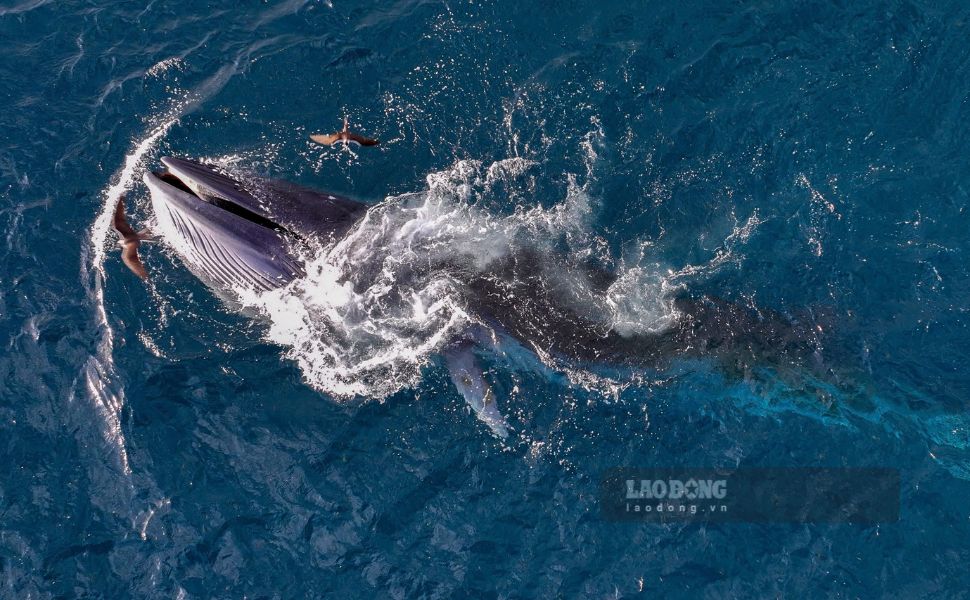On July 9, the Department of Agriculture and Environment of Gia Lai province requested the Department of Culture, Sports and Tourism; Tourism Association and People's Committees of coastal communes and wards to strengthen the protection of Bryde whale (Balaenoptera edeni) - a rare marine animal that is continuously appearing in local waters.
According to the Department of Agriculture and Environment, from 2022 to present, especially in June and July 2025, Bryde elephants have regularly appeared in many coastal waters of the province such as: Xuan Thanh (Phu My Dong commune), Vung Boi (An Luong commune), De Gi commune, Hon Seo, Hon Co, Hon Kho Lon (Quy Nhon Dong ward), Mui Ganh (Hoai Nhon Dong ward) ... The continuous appearance of this whale shows that the environment and marine ecosystem of Gia Lai are gradually recovering, with abundant food sources suitable for their food habits.
Bryde whale belongs to the family of humpback whale (Balaenopteridae), easily identified as having three cranes running on the front of the airway, along with 40-70 folds in the throat area that help open the mouth when eating.

Bryde whale lives near the shore, appearing commonly in the waters of Vietnam, China, Thailand, especially around the Gulf of Thailand. In Vietnam, they have been recorded in the South Central and Southern provinces.
In Gia Lai alone, the frequency of Bryde elephants has increased in the past 5 years. The fact that large marine animals such as elephants choose a sea area as a food source is not a coincidence, but the result of a long-term adaptation process with favorable environmental conditions.
However, recently, there have been cases of tourist boats, canoes, and fishing boats approaching areas with elephants. Some spontaneous tours that allow visitors to see whale, take photos... can make this marine animal nervous, leave or even get stranded.
Bryde sharks useDooms for orientation and communication, so the sound of the boat's engine can seriously affect them. Just a minor collision is enough to cause injury. In particular, with the habit of "feeding" (pulling food into the mouth wide open), Bryde elephants can easily swallow plastic bags or plastic waste floating at sea.
To protect and conserve this rare whale species, the Department of Agriculture and Environment recommends that the Department of Culture, Sports and Tourism; Tourism Association promote propaganda and dissemination of whale access rules in tourism activities.
In particular, it is instructed that organizations and individuals organizing whale tours must keep a minimum distance of 100m, absolutely do not approach the front or back of the whale's head or tail. The speed of the boat must be limited, it is best to turn off the engine when entering an area with elephants. In addition, no more than 3 ships must operate at the same time in areas with elephants.
The People's Committees of coastal communes and wards are required to strengthen propaganda and mobilize fishermen and fishing boat owners to strictly comply with regulations on environmental protection and aquatic resource protection, especially in areas where whale appear. At the same time, it is necessary to closely coordinate in monitoring the activities of tourist boats and service boats to ensure that they do not cause negative impacts on this rare aquatic species.











